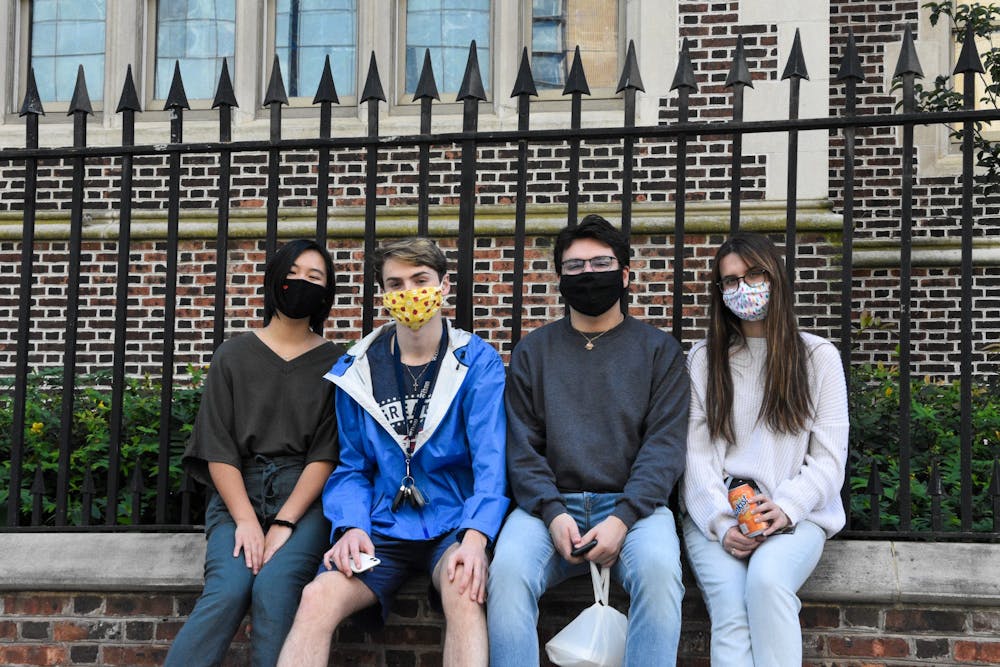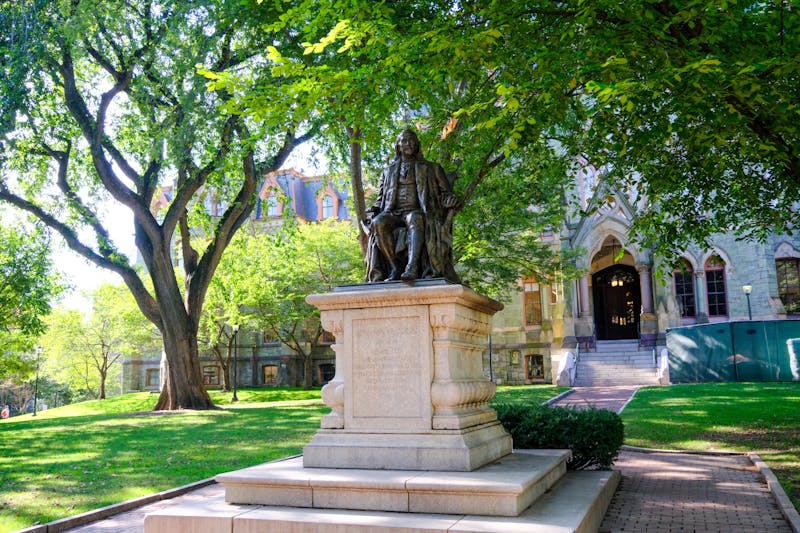
Caroline Magdolen writes that this period of increased isolation reminds us that we need human connection more than ever.
Credit: Ana GlassmanEven before the coronavirus pandemic, college students were facing an epidemic of loneliness, which has spawned viral videos, psychology articles, and several DP columns discussing the topic. But the loneliness of previous years is nothing compared to how students feel now.
As a first year, I anticipated that college would be far different from high school. Where I once got to see my peers for seven hours a day, I would now attend classes that meet far less often and are far less interactive. I anticipated that as a shy person, I would have to consciously attempt to be more spontaneous and outgoing. After all, friendship requires intention, and we can express this intention by putting time and effort into our friendships. In fact, a study from the University of Kansas estimated that it takes 50 hours spent to go from acquaintances to casual friends, and more than 200 hours to become close friends.
I anticipated that the pandemic would make it more difficult to establish these relationships, and I adjusted accordingly. I planned to take advantage of every opportunity Penn offered, from program communities to pre-orientation programs, hoping to make friends that I could then see on campus. I did not anticipate that Penn would go back on its on-campus plans, transforming the Penn community into a diaspora: separated by states, nations, and often time zones, and connected by nothing but a WiFi signal.
Though it may sound obvious, too few people realize that friendship starts with a “shared experience.” It’s why lonely adults are encouraged to join communities that pertain to their interests, like a martial arts class or a painting group. It’s why students make more friends than adults to begin with — we are constantly brought together by our classes and activities.
Technically, we still have that “shared experience” now, but the interactions that ordinarily spark friendship aren’t there. We can’t chat with the people sitting next to us, or impulsively form a study group the night before a problem set is due. We miss out on the nonverbal cues that define a person, like eye contact and hand gestures. When someone tells a joke, their peer’s smile and laughter is cut off by lag. We are confined to small boxes on a laptop screen, often with the video off and the mic muted.
That said, Penn’s community has given students bountiful opportunities to make friends. My calendar is filled with more events than I can possibly attend, hosted by my college house, program community, engineering cohort, and countless clubs whose listservs I signed up for. Along with over a thousand other students, I’ve joined Berri to chat with my peers, with nothing to lead the discussion but an anonymous profile composed of interests, shared classes, and fun facts. The problem at Penn isn’t making friends — clearly, we have the infrastructure for that. The problem is keeping them.
I’ve gotten twenty matches on Berri, but I only got to exchange socials with two of them. I thoroughly enjoyed the conversations I had through my college house’s matching system, but no follow-up conversations ensued. Nearly every Zoom call and social interaction I’ve had at Penn feels like a one-off, and I’m not the only first-year that feels this way.
It’s not that Penn students are apathetic about maintaining friendships. If anything, the popularity of Berri suggests that the Penn community is eager to forge relationships, even in such unprecedented times. Rather, it’s unclear where we go from here, since the future of the Penn community is extremely vague. Will we be on campus in the next term? Assuming we are, to what extent will we be able to interact with one another? Is it worthwhile to spend hundreds of hours on Zoom this term, building close friendships, or should we just wait until we’re on campus, however long it takes?
It is ridiculous to expect first years, already adapting to a new academic environment in these unprecedented times, to know the answers to all of these questions. We shouldn’t be surprised when, uncertain of what friendship should look like right now, first years aren’t engaging with each other online as much as they would in person.
But we can certainly do better. At Penn, we are a community that innovates and adapts, and we are capable of creating a better “shared experience,” perhaps through a virtual community like Gather or expanding PeerPod @ Penn, a website which aims to make forming study groups and finding classmates easier. We could create virtual spaces that are open 24/7, or request recitations keep the same breakout rooms for weeks at a time, so that we can really get to know our classmates. In such an isolated time, we need human connection more than ever, so let’s start discussing and devising solutions for the loneliness crisis that off-campus education inevitably creates.
CAROLINE MAGDOLEN is a College and Engineering first-year student studying Systems Engineering & Environmental Science. Her email address is magdolen@sas.upenn.edu
The Daily Pennsylvanian is an independent, student-run newspaper. Please consider making a donation to support the coverage that shapes the University. Your generosity ensures a future of strong journalism at Penn.
Donate






